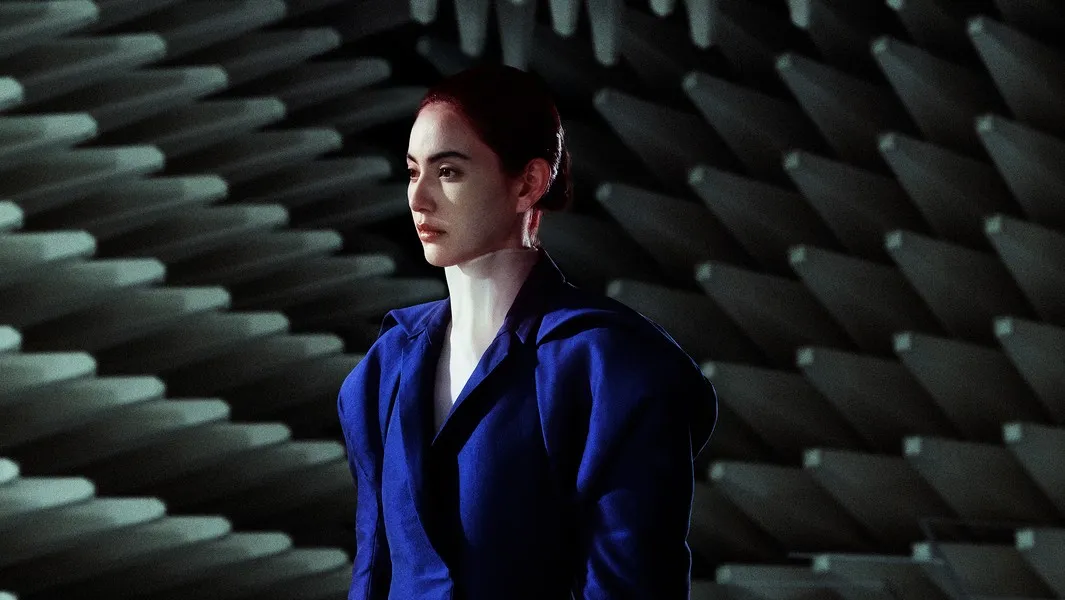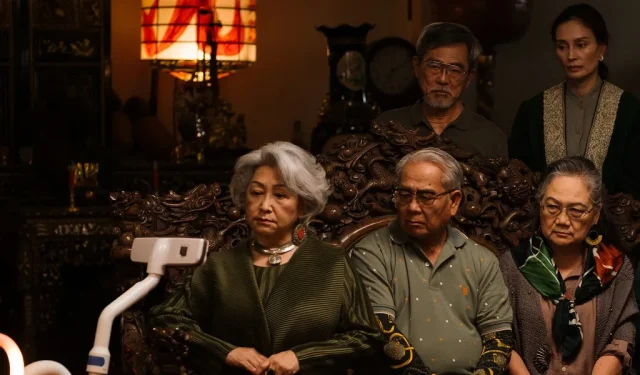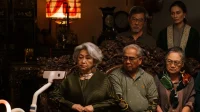A Unique Cinematic Experience: Ratchapoom Boonbunchachoke’s *A Useful Ghost*
Imagine a woman who, after her death, re-emerges as a vacuum cleaner, determined to stay close to her grieving husband. This unconventional premise sets the stage for *A Useful Ghost*, the debut feature film by Thai writer-director Ratchapoom Boonbunchachoke. This intriguing ghost story made its world premiere at the prestigious Critics’ Week during the Cannes Film Festival on Saturday.
Following the tragic death of Nat due to dust pollution, her husband, March, finds himself engulfed in sorrow. The film’s synopsis reveals, “His daily life is turned upside down when he discovers his wife’s spirit has been reincarnated in a vacuum cleaner.” This absurd yet poignant twist rekindles their bond, intensifying it beyond the ordinary. However, not everyone is supportive; March’s family, still burdened by the haunting memory of a workplace accident, struggles to accept this supernatural connection. In an effort to demonstrate her worth as a “useful ghost,”Nat takes on the task of cleaning the factory, even if it involves confronting lost souls from the past.
The film features performances by Thai actress, influencer, and model Davika Hoorne, alongside Witsarut Himmarat, with additional support from an ensemble cast including Apasiri Nitibhon, Wanlop Rungkumjud, and Wisarut Homhuan. Produced by Bangkok-based 185 Films, international sales are being managed by Best Friends Forever.
Inspiration from Thai Folklore
*A Useful Ghost* is steeped in rich cultural narratives, drawing inspiration from the classic Thai ghost story of Mae Nak. This tale features a woman whose love for her husband transcends death. After he is injured in battle and away receiving medical care, she dies during childbirth. Upon his return, he encounters the spirits of both his wife and child, blissfully ignoring the warnings from his neighbors about the supernatural circumstances surrounding his domestic life.
Boonbunchachoke reflects on the significance of this folklore, stating, “It’s an iconic character in Thai popular culture, and there have been TV, theater, and other stories about it.” The director is deeply interested in socio-political themes; he contemplates the intersections of ghostly narratives and modern urban existence. “I wondered how ghosts would exist in contemporary society,” he elaborates, envisioning a scene where a ghost navigates an office space, merging legendary tales with the demands of capitalism.

Courtesy of Critics’ Week
Addressing Historical Contexts
Beyond the surface, the film serves as a commentary on the importance of acknowledging history. Boonbunchachoke emphasizes, “In Thailand, there is so much history of small people that gets forgotten.” He critiques the tendency to ignore or exorcise memories of a challenging past, suggesting that confronting these narratives can prevent them from resurfacing in harmful ways. “As human beings, maybe we owe ghosts something. We need to listen to them and respond to them.”
Innovative Filmmaking Techniques
The technical execution of the vacuum scenes required meticulous planning. “We had two models of the vacuum cleaner,” the director explains. “One had a motor for remote control, allowing it to move on the ground, but the hose was manually controlled.” Achieving nuanced movement involved a collaborative effort, as three crew members worked in tandem to position the hose before post-production adjustments were made.
The choice of a vacuum cleaner as the vehicle for Nat’s spirit emerged organically during the film’s development. Initially, Boonbunchachoke envisioned a traditional ghostly appearance. Yet, he found the concept of a spirit inhabiting an object to be more evocative. “The vacuum cleaner holds a particularly Thai significance,”he notes. “Dust pollution is a pressing issue in Thailand, and ‘dust’ in slang symbolizes insignificance, representing individuals subjected to the whims of those in power.” This symbolism resonates with themes of personal agency and societal inequities.


